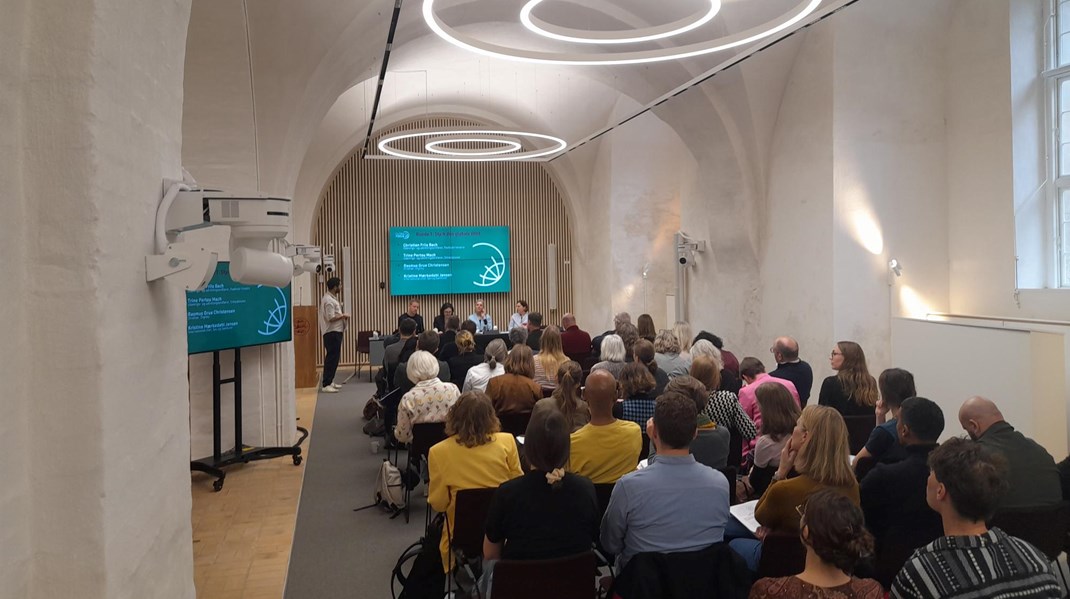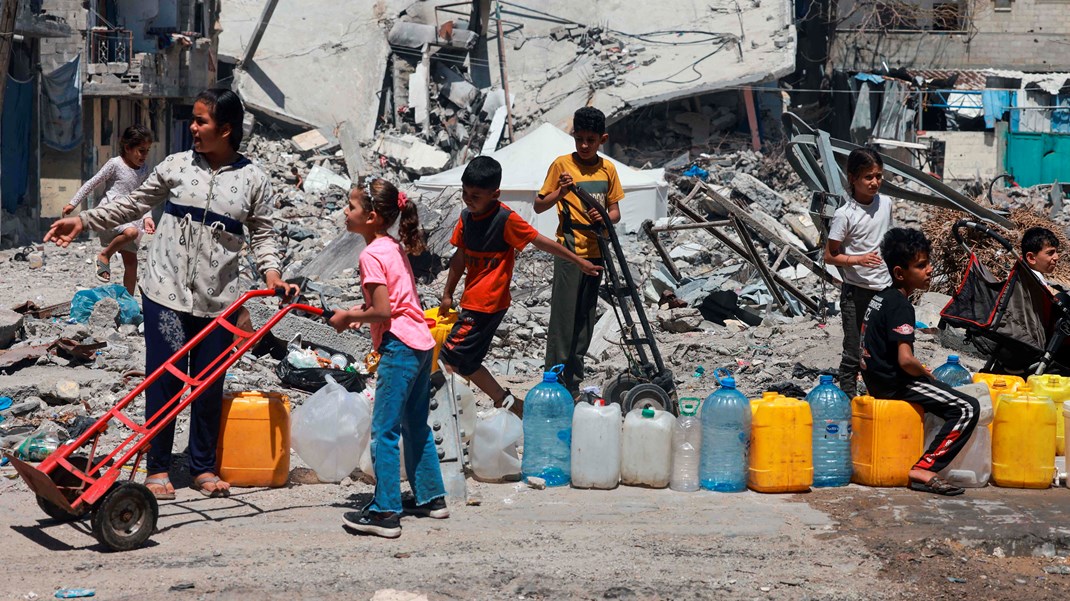Nearly 600,000 Syrians living under siege
SC/12380
7701st Meeting (PM)
Security Council
Meetings Coverage
Syria’s Permanent Representative Accuses Turkey, Saudi Arabia of Using Aid Convoys in Channelling Weapons to Foreign Fighters
There was an urgent need for political action to bolster the ceasefire and end the suffering in Syria, but humanitarian access to the millions of people in need must never be open to negotiation, the United Nations Emergency Relief Coordinator emphasized as he briefed the Security Council today.
“Protecting civilians and granting access should never be dependent on political negotiations or as a bargaining chip for ad hoc deals on the ground”, said Stephen O’Brien, who is also the Under-Secretary-General for Humanitarian Affairs, in presenting the monthly report issued pursuant to resolution 2139 (2014) on humanitarian access in the beleaguered country.
Speaking via video teleconference from Geneva, he said there must be immediate and unimpeded access throughout Syria; not just to one third, but to all those in need, in a sustained manner covering the full package of supplies, including medical and surgical items. The sieges, under which 597,000 people were suffering, must be lifted once and for all, and immediately, he stressed, declaring: “The use of sieges as a weapon of war is reprehensible.”
He said he had just returned from Syria and had run out of words to describe the misery he had witnessed, including the results of indiscriminate attacks against camps for displaced people and other civilian structures, with total disregard for humanitarian law. Just this week, terrorist attacks had taken the lives of scores more people in villages and a hospital had been attacked in a suicide bombing, he said, adding that another hospital, the last serving a large region, had been struck by barrel bombs.
In addition to people in besieged areas, the vast majority victims of Government measures in parts of rural Damascus and Homs, and those closed off by Islamic State in Iraq and the Levant (ISIL/Da’esh) and other armed groups, he said, hundreds of thousands of civilians in northern rural Homs and Hama had limited freedom and access to water and other necessities. The situation of civilians across Aleppo Governorate also remained alarming.
Despite the challenging circumstances, he said, United Nations agencies and non-governmental partners continued their efforts to meet the urgent humanitarian needs of the Syrian population. Millions of people had been reached with assistance in April, while the United Nations Children’s Fund (UNICEF) and the World Health Organization (WHO) had begun another nationwide immunization campaign targeting 2 million children.
Cross-line inter-agency operations to besieged, hard-to-reach and other priority locations continued, with more than 800,000 people reached this year in those areas and many more than once, he continued. Describing a number of successful high-altitude airdrops by the World Food Programme (WFP), he said several weeks of airdrops had nevertheless brought an amount equal to only one convoy. Airdrops were an option of last resort, because they were costly, dangerous and technically challenging.
Meanwhile, deliberate interference by parties to the conflict, most notably the Government of Syria, continued to prevent the effective delivery of aid, he stated. In that regard, he called upon the Government to approve the United Nations plan for June, which sought to reach 1.1 million people in 34 besieged, hard-to-reach and other priority cross-line locations, and to remove any and all conditions, not least those concerning the amount or type of aid that could be delivered. The Government had severely curtailed the ability of the United Nations to reach even those in locations already approved for deliveries during the month of May, he said, adding that no conclusion could be drawn other than that such actions were part of an effort to further punish civilians.
He went on to note that non-State armed groups continued to prevent a United Nations assessment mission from proceeding to the besieged towns of Foah and Kefrayah in Idleb Governorate. Those restrictions were not only in violation of earlier guarantees and approvals obtained from the Government and other parties, they were deliberately and cynically designed to inflict more unnecessary suffering on civilians living in besieged and hard-to-reach areas, he stressed.
Such terrorists were granted access to media outlets and even invited to participate in the Geneva peace talks, as if there was such thing as a moderate opposition, he continued. A number of States, including Turkey and Saudi Arabia, had threatened very clearly to continue to support terrorism in Syria unless there was a change of Government. “Suffering is not a political tool,” he emphasized, questioning how the situation could be improved when Turkey used humanitarian corridors as transit areas for thousands of foreign fighters. Turkey also provided weapons to those fighters, using aid convoys as a cover, he said, going on to question how the international community could reward such behaviour by allowing that country to host the World Humanitarian Summit.
Turning to the “manipulation” of humanitarian access, he said the Secretary-General’s report was inaccurate in citing unreliable sources, stressing that the Syrian Government accepted all medical assistance except tools that could be used by terrorists. Of the 26 requests for humanitarian convoys in May, it had accepted 19, but the United Nations had only sent three, he noted. Voicing his country’s readiness to cooperate with the United Nations, he nevertheless underlined that “cooperation is a two-way street”, calling upon the Organization to consult the Government rather than simply criticizing it.
Following that intervention, Samantha Power (United States) said there was irony in the claims by Syria’s representative against the international humanitarian community since his Government was committing such abuses as preventing babies from getting formula.
She asked Mr. O’Brien whether he wished to respond, to which he replied that he stood by all the facts he had presented, stressing that his responsibility was to present information in an unbiased manner.
Mr. Ja’afari, saying that he was also presenting facts, voiced his country’s pride in having been a founding member of the United Nations, adding that Syria remained proud of the Organization. He emphasized that he was not accusing the humanitarian community, but stating that Turkey was channelling weapons through humanitarian corridors. No one had refuted that fact, he pointed out.
The meeting began at 3:07 p.m. and ended at 3:50 p.m.


